[ESP-ENG] Padres e hijos legendarios, apellidos ilustres en la F1 de ayer y de hoy: Verstappen-Schumacher-Andretti-Villeneuve) / Legendary fathers and sons, illustrious surnames in the F1 of yesterday and today: Verstappen-Schumacher-Andretti-Villeneuve)
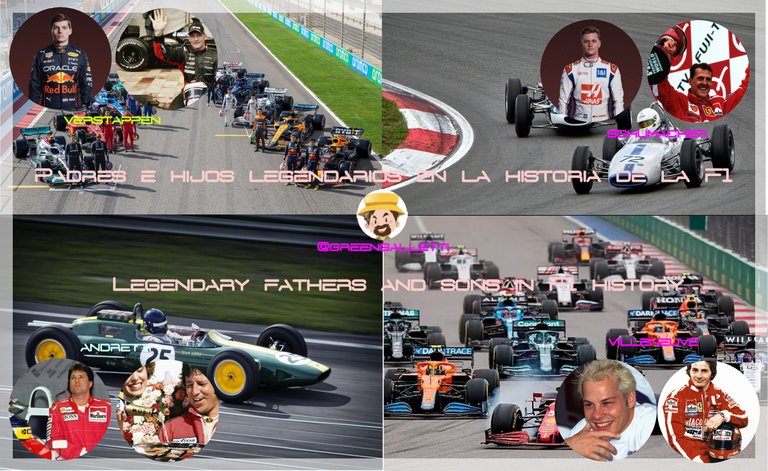
Recuerdo que cuando Max Emilian Verstappen (ese es su nombre completo) comenzó a destacarse como piloto de Fórmula 1 allá por el 2015 piloteando un monoplaza Toro Rosso (ahora redenominado Alpha Tauri) y era casi un ilustre desconocido, me vino a la memoria por cualquier rara analogía el nombre de su padre, Joss Verstappen, que también habia incursionado en la Fórmula 1 sin destacarse demasiado.
Sus excelentes performances, que lo llevaron ser, con Red Bull, el piloto más joven del mundo en ganar un Gran Premio, y a llevarse su primer mundial el año pasado, son harto conocidas y no voy a hablar de su trayectoria.
Simplemente me sirve como introducción a todos los padres e hijos que han transitado la Fórmula 1 con mayor o menor suerte. A veces han sido los padres a destacarse, como en el caso de Michael Schumacher, y en otros casos han sido los hijos, como es el caso del actual campeón, pero siempre han dejado en la máxima categoría del automovilismo deportivo la marca de sus apellidos.
Comenzaremos a hacer un viaje hacia atrás a través del tiempo, para recordar a estos fenómenos del automovilismo mundial que, a veces, lograron transmitir su ADN deportivo a sus hijos y en otros casos parecería verificarse el extremo opuesto.

I remember that when Max Emilian Verstappen (that's his full name) began to stand out as a Formula 1 driver back in 2015 driving a Toro Rosso single-seater (now renamed Alpha Tauri) and was almost an illustrious unknown, the name of his father, Joss Verstappen, who had also ventured into Formula 1 without standing out too much, came to my mind by any weird analogy.
His excellent performances, which led him to be, with Red Bull, the youngest driver in the world to win a Grand Prix, and to win his first world championship last year, are well known and I am not going to talk about his career.
It simply serves as an introduction to all the fathers and sons who have been in Formula 1 with more or less luck. Sometimes it has been the fathers who have stood out, as in the case of Michael Schumacher, and in other cases it has been the sons, as in the case of the current champion, but they have always left the mark of their surnames in the highest category of motorsport.
We will begin a journey back in time to remember these phenomena of world motorsport that, sometimes, managed to transmit their sporting DNA to their children and in other cases the opposite seems to be true.
Jos & Max Verstappen.
Jos, el padre del actual campeón, tuvo una dilatada carrera en la F1, llevando incluso a ser compañero de equipo de Michael Schumacher cuando el alemán corría para Benetton.
No obstante (o tal vez por ese mismo motivo, ya que los compañeros de Schumacher rara vez ganaban) nunca pudo cruzar triunfante la línea de llegada, solo dos podios en toda su carrera (en la temporada de su debut) que duró exactamente una década (del 1994 al 2003 año en el que se retiró).
Después de dejar Benetton, comenzó a deambular por equipos sin mayores pretensiones de triunfos como Arrows (equipo al cual volvería en las temporadas 2001-2002), Simtek (equipo que duro dos años, ya que debuto en 1994 y se retiró de la F1 en 1995) o Tyrrell en su penúltimo año en la F1, hasta 1998 cuando comenzó a ser piloto de pruebas sin competir directamente primero para Benetton y luego para Honda.
De Max no hay mucho para agregar que los #hivers deportivos de @fulldeportes no sepan. Una de las grandes estrellas actuales de la F1, campeón mundial, primer piloto indiscutido de Red Bull, campeón europeo y mundial de karting cuando todavía soñaba con ingresar a la F1.
Entre Jos Verstappen y Michael Schumacher siempre hubo una estrecha relación de camaradería fruto de la admiración que el piloto holandés profesaba hacia su colega alemán.
A punto tal que Max, de pequeño, llamaba a Schumacher, "tío Michael"

Jos, the father of the current champion, had a long career in F1, even being Michael Schumacher's teammate when the German raced for Benetton.
However (or perhaps for that very reason, as Schumacher's teammates rarely won) he never crossed the finish line triumphant, only two podiums in his entire career (in his debut season) which lasted exactly one decade (from 1994 to 2003, when he retired).
After leaving Benetton, he began to wander through teams without major pretensions of triumphs as Arrows (team to which he would return in the 2001-2002 seasons), Simtek (team that lasted two years, since he debuted in 1994 and retired from F1 in 1995) or Tyrrell in his penultimate year in F1, until 1998 when he began to be a test driver without competing directly first for Benetton and then for Honda.
From Max there is not much to add that the #sports #hivers of @fulldeportes don't know. One of the great current stars of F1, world champion, first undisputed Red Bull driver, European and world karting champion when he was still dreaming of entering F1.
Between Jos Verstappen and Michael Schumacher there was always a close relationship of camaraderie due to the admiration that the Dutch driver had for his German colleague.
So much so that Max, as a child, used to call Schumacher "Uncle Michael".
Michael & Mick Schumacher.
Creo que si hay una copia de padre e hijo de la cuál se va a dar que hablar por años es la de Michael & Mick Schumacher.
Tal vez sea porque el padre ganó tanto y el hijo aún no ha ganado nada.
Para remontarnos a otro piloto de la magnitud deportiva del alemán tenemos que caer en Juan Manuel Fangio (sin descendencia deportiva) o del actual Lewis Hamilton, en las mismas condiciones. Y por lo tanto el parangón padre-hijo no se puede decir.
La "dinastía Schumacher" como la han llamado algunos periodistas deportivos, comprende también a Ralf, el hermano de Michael. Sin embargo todos han quedado lejos del multi-campeón. Siete títulos mundiales solo igualados hasta hoy por Hamilton, el resto a distancia de seguridad.
De Michael Schumacher poco podemos agregar que no se haya dicho una y mil veces. Aún hoy posee el récord de títulos mundiales (junto a Lewis Hamilton) logrando en el año 2002 por primera vez en la historia de la F1 superar la marca de los cinco títulos mundiales ganados por el argentino Juan Manuel Fangio después de casi medio siglo. Todavía volvería a gritar campeón dos veces más antes de dejar Ferrari. El resto muy lejos encabezado por Alain Post con cuatro títulos y de ahí todos para abajo.
Disputó 308 grandes premios, de los cuales ganó 91, casi el 30%, números para el asombro. En los 15 años corriendo en F1 de cada tres carreras disputadas ganaba una.
155 podios, que es como decir la mitad de las carreras disputadas. No verlo en el podio durante todos estos años era símbolo de extrañeza, de algo inusual.
Por si fuera poco, los cinco títulos en Ferrari los obtiene en forma consecutiva del 2000 al 2004. Si hasta hace poco sentíamos decir que la F1 era aburrida porque ganaba (casi) siempre Hamilton imaginemos lo que era en aquel entonces.
Caracterizado por una voluntad de hierro, sabía adecuarse a cada tipo de pista y carrera y vivía permanentemente al lado de los mecánicos tratando de superarse día a día. Su afán de competencia y victoria lo ha hecho pasible de algunas críticas al no dejar el mínimo espacio a sus compañeros de equipo, aun en circunstancias en que hubiera podido hacerlo y en cambio haberlos usado a su favor en distintas estrategias de carrera.
Mick comenzó con buen pie. Heredero destinado a recoger experiencia en la famosa Academia de Pilotos de Ferrari, hizo paso a paso toda su carrera más que al amparo de su apellido, como consecuencia de un trabajo serio y sostenido por triunfos en las categorías inferiores del automovilismo mundial antes de llegar a la F1. Nacido en las postrimerías del siglo XX, todavía con 23 años tiene mucho para dar y ya se habla de un salto en Aston Martin, aunque como van las cosas para el equipo inglés sería mejor, casi, que se quedara en Haas.
En la temporada anterior prevaleció sobre el esponsorizado Nikita Mazepin, pero con la llevada de Kevin Magnussen ha quedado siempre detrás del danés, quien está cumpliendo una excelente campaña.
Después de pasar por el karting, como su padre, hace todas las categorías intermedias sin saltar ninguna, a pesar de que su apellido ilustre tal vez se lo podia permitir.
Tres años en Fórmula 4 con buenos resultados y un subcampeonato (del 2014 al 2016) con apenas 15 años cuando comienza a correr.
En el 2017 el primer salto de calidad a la Fórmula 3 con el equipo Prema Powerteam aunque termina bastante atrás en la clasificación general de la temporada, en la posición 12a, muy por debajo de las expectativas creadas.
Sin embargo con voluntad y tesón se recupera al año siguiente ganando siete carreras y el primer título mundial. El futuro hacia el ingreso en la F1 parece ser cada vez más inminente.
El paso obligado en la Fórmula 2 en el 2019 le presenta los mismos obstáculos que en la F3, y termina en la misma posición de aquel entonces, 12a. Sin embargo es confirmado en su butaca para el 2020 temporada, en la actual vuelve a confirmar sus condiciones y gana el mundial de pilotos de la F2. Mientras tanto, no solo ingresa en la Academia de Ferrari, sino que es el piloto de pruebas de Haas en la F1.
Como siempre pareciera que el primer año es siempre duro para el joven Mick y durante la temporada 2021 le toca guiar un monoplaza poco confiable, el Haas VF-21. Termina la temporada en el puesto 19 sin obtener puntos. Para el 2022 es confirmado en Haas y a su vez es el tercer piloto de Ferrari junto con Antonio Giovinazzi. En el 2022 todavía no ha obtenido puntos después de siete carreras, aunque estuvo muy cerca en el GP de Baréin, donde quedo al margen de la zona puntuable en el lugar 11.

I think if there is a father and son duplicate that will be talked about for years to come, it's Michael & Mick Schumacher.
Maybe it's because the father won so much and the son hasn't won anything yet.
To go back to another driver of the German's sporting magnitude we have to go back to Juan Manuel Fangio (without sporting descent) or the current Lewis Hamilton, in the same conditions. And therefore the father-son comparison cannot be said.
The "Schumacher dynasty", as some sports journalists have called it, also includes Ralf, Michael's brother. However, they have all fallen far short of the multi-champion. Seven world titles only matched to date by Hamilton, the rest at a safe distance.
There is little we can add about Michael Schumacher that has not already been said a thousand times. He still holds the record of world titles (together with Lewis Hamilton) and in 2002, for the first time in the history of F1, he managed to surpass the mark of five world titles won by the Argentinean Juan Manuel Fangio after almost half a century. He would go on to become champion two more times before leaving Ferrari. The rest were far behind, led by Alain Post with four titles and from there on down.
He competed in 308 Grand Prix, of which he won 91, almost 30%, numbers to amaze. In the 15 years he raced in F1, he won one out of every three races contested.
155 podiums, which is like saying half of the races contested. Not seeing him on the podium during all these years was a symbol of strangeness, of something unusual.
As if that wasn't enough, he won the five titles at Ferrari consecutively from 2000 to 2004. If until recently we felt that F1 was boring because Hamilton (almost) always won, imagine what it was like back then.
Characterized by an iron will, he knew how to adapt himself to each type of track and race and lived permanently next to the mechanics trying to improve himself day by day. His eagerness for competition and victory has made him liable to some criticism for not leaving the minimum space to his teammates, even in circumstances in which he could have done it, and instead he used them to his advantage in different race strategies.
Mick started off on the right foot. Heir destined to gather experience at the famous Ferrari Drivers Academy, he made step by step his entire career more than under the protection of his surname, as a result of a serious work and sustained by victories in the lower categories of world motorsport before reaching F1. Born at the end of the 20th century, at the age of 23 he still has a lot to give and there is already talk of a jump to Aston Martin, although as things are going for the English team it would be better, almost, if he stayed at Haas.
Last season he prevailed over the sponsored Nikita Mazepin, but with the arrival of Kevin Magnussen he has always been behind the Dane, who is having an excellent season.
After going through karting, like his father, he has done all the intermediate categories without skipping any, although his illustrious family name could perhaps allow him to do so.
Three years in Formula 4 with good results and a runner-up (from 2014 to 2016) with just 15 years old when he starts racing.
In 2017 the first quality jump to Formula 3 with the Prema Powerteam team although he finishes quite far back in the overall standings of the season, in 12th position, well below the expectations created.
However, with will and tenacity, he recovered the following year, winning seven races and his first world title. The future towards F1 seems to be more and more imminent.
The obligatory step in Formula 2 in 2019 presents him with the same obstacles as in F3, and he ends up in the same position as then, 12th. However, he is confirmed in his seat for the 2020 season, in the current season he confirms again his conditions and wins the F2 drivers' world championship. In the meantime, he not only joined the Ferrari Academy, but also became the test driver for Haas in F1.
As always it seems that the first year is always hard for the young Mick and during the 2021 season he has to drive an unreliable car, the Haas VF-21. He finishes the season in 19th place with no points. For 2022 he is confirmed at Haas and in turn is the third Ferrari driver along with Antonio Giovinazzi. In 2022 he has yet to score points after seven races, although he came very close at the Bahrain GP, where he was just outside the scoring zone in 11th place.
Mario & Michael Andretti.
| Mario Andretti celebra su triunfo en el GP de Long Beach (EE.UU.) en abril de 1977 a la guia del revolucionario Lotus 78, ese año saldría tercero en el Mundial de Pilotos / Mario Andretti celebrates his victory at the Long Beach GP (USA) in April 1977 at the wheel of the revolutionary Lotus 78, that year he would finish third in the World Drivers' Championship. | |
Los Andretti son la familia estadounidense por excelencia en el mundo de la Fórmula 1, y porque no también del automovilismo deportivo.
El legado motoristico comienza con Mario Andretti (italiano nacionalizado estadounidense) y su larga trayectoria al volante (una de las más extensas) ya sea en los EE. UU. como en Europa. En realidad su nacionalidad italiana es un dato curioso, ya que nace en Montona en 1940, cuando todavía era una provincia italiana y pertenecía a Istria (fue dominio italiano desde el final de la Primera Guerra Mundial -1920- hasta el final de la Segunda Guerra Mundial -1947-) Al terminar el segundo gran conflicto bélico le fue acordada como botín de guerra a Yugoslavia y actualmente es territorio de Croacia. Para huir a las represalias, ya que ese lugar se había transformado en campo de concentración, Mario Andretti con su familia se trasladan a Italia (en realidad pocos kms, no más de 60 separan a Montona de Trieste) donde comienzan a rehacer su vida. En 1955 obtiene con su familia la visa para poder ingresar en los EE. UU. donde se establecen definitivamente.
Su último año como piloto activo en la Fórmula 1 lo ve correr con Williams y Ferrari, obteniendo solo 3 puntos en la última carrera del campeonato celebrada en el circuito de Monza (Gran Premio de Italia). Dejaba atrás 15 años de participación activa en la máxima categoría del automovilismo deportivo con 19 podios, 12 grandes premios ganados en 131 carreras disputadas y un título mundial.
Siguió corriendo la categoría Sport Prototipo hasta el año 1988 (ya tenía 48 años de edad) y las 500 Millas de Indianápolis lo vieron protagonista hasta el año 2000 (tenía ya 60 años). En el año 2017 fue incluido en el Salón de la Fama de la FIA en París.
Su época de mayor esplendor corresponde a cuando corría con Lotus, aquel monoplaza negro con los colores dorados de una empresa patrocinadora tabacalera, que sirvió para identificar con esos dos colores la popularidad de ambos.
En el año 1978 se corona campeón con el equipo cuyo director deportivo y jefe del equipo era el excéntrico Colin Chapman (el que arrojaba la gorra por el aire cada vez que ganaba uno de sus pilotos).
Pero el palmarés de Mario Andretti no se detiene en la Fórmula 1. Fue campeón también en su país natal en la IndyCar en el año 1984.
La carrera deportiva de Michael Andretti en la Fórmula 1 fue muy distinta de la del padre, sea en cantidad de carreras disputadas y triunfos, ya que su nombre está más asociado a la IndyCar (en ese momento se llamaba Camp Car y luego CART) donde corrió 317 grandes premios, ganando 42 y el título mundial en 1991.
Precisamente ese mundial ganado le dio el espaldarazo (aparte del peso de su apellido) para ingresar en la Fórmula 1 dos años más tarde, en 1993, único año en que participó, disputando toda la temporada con McLaren (el tradicional auto rojo y blanco con el patrocinio de una famosa empresa petrolera) con 13 grandes premios, un solo podio y siete puntos en total en su haber.
La desilusión de correr en un ambiente, una categoría y un auto en el que no sentí acomodo lo hizo volver a los EE. UU. para seguir compitiendo ininterrumpidamente desde 1994 hasta 2002, año de su retiro.

The Andrettis are the quintessential American family in the world of Formula 1, and why not also in motorsport.
The motor racing legacy begins with Mario Andretti (Italian nationalized American) and his long career behind the wheel (one of the longest) both in the U.S. and in Europe. Actually his Italian nationality is a curious fact, since he was born in Montona in 1940, when it was still an Italian province and belonged to Istria (it was an Italian dominion from the end of the First World War -1920- until the end of the Second World War -1947-). At the end of the second great war conflict it was granted as war booty to Yugoslavia and nowadays it is a Croatian territory. In order to escape the reprisals, since this place had become a concentration camp, Mario Andretti and his family moved to Italy (in fact only a few kilometers, no more than 60 km separate Montona from Trieste) where they began to rebuild their lives. In 1955 he and his family obtained a visa to enter the USA, where they settled permanently.
His last year as an active driver in Formula 1 saw him race with Williams and Ferrari, obtaining only 3 points in the last race of the championship held at the Monza circuit (Italian Grand Prix). He left behind 15 years of active participation in the highest category of motorsport with 19 podiums, 12 Grand Prix wins in 131 races and a world title.
He continued racing the Sport Prototype category until 1988 (he was already 48 years old) and the Indianapolis 500 Miles saw him protagonist until 2000 (he was already 60 years old). In 2017 he was inducted into the FIA Hall of Fame in Paris.
His period of greatest splendor corresponds to when he raced with Lotus, that black single-seater with the golden colors of a tobacco sponsoring company, which served to identify with those two colors the popularity of both.
In 1978 he was crowned champion with the team whose sporting director and team manager was the eccentric Colin Chapman (the one who threw his cap in the air every time one of his drivers won).
But Mario Andretti's track record does not stop in Formula 1. He was also champion in his native country in the IndyCar in 1984.
Michael Andretti's career in Formula 1 was very different from his father's, both in terms of number of races and victories, since his name is more associated with IndyCar (at that time it was called Camp Car and then CART) where he raced 317 grand prix, winning 42 and the world title in 1991.
Precisely that world championship win gave him the backing (apart from the weight of his surname) to enter Formula 1 two years later, in 1993, the only year he participated, racing the entire season with McLaren (the traditional red and white car sponsored by a famous oil company) with 13 grand prix, a single podium and seven points in total to his credit.
The disillusionment of racing in an environment, a category and a car in which he did not feel comfortable made him return to the USA to continue racing uninterruptedly from 1994 to 2002, the year of his retirement.
Gilles & Jacques Villeneuve.
Tal vez como consecuencia del accidente que le costó la vida (el Gran Premio de Bélgica en 1982) o tal vez por su carácter, su estilo de pilotaje definido por muchos como inolvidable y por haber sido un ídolo de la tifoseria ferrarista es más popular Gilles que Jacques. Y sin embargo el campeón mundial es este último. Gano el título en 1995 tras duelar en pista, nada más y nada menos que con Michael Schumacher.
Cuando muere su padre Gilles, Jacques tenía solo 13 años. En 1996, 14 años después, debuta en la Fórmula 1. Jacques estuvo 11 años disputando carreras en la F1 como piloto de Williams al inicio, y luego BAR, Renault, Sauber y BMW Sauber en los cuales disputo 164 grandes premios, ganando 11 y obteniendo 23 podios. Nada mal considerando que le toco correr con monoplazas que no pertenecían a la elite de la F1.
Se retiró de la F1 en el 2006, aunque siguió corriendo en Le Mans, IndyCar, e incluso Rally y la Formula E. En el 2016 abandona definitivamente las carreras con 45 años sobre sus espaldas.
Gilles Villeneuve por su parte, estuvo únicamente cinco años en la máxima categoría del automovilismo deportivo, sin embargo su paso quedo marcado a fuego en la memoria de todos los aficionados a pesar de no haber ganado ningún mundial. Ni siquiera tuvo una gran cantidad de premios ganados durante su paso en la F1, apenas cruzó triunfalmente la línea de meta en 6 oportunidades de los 68 grandes premios disputados y sin embargo por su estilo de guía espectacular y combativo, fue un ídolo en Ferrari y admirado en el resto de la F1.
Incluso algunos de sus adelantos han sido considerados como obras maestras de conducción en el automovilismo deportivo, llevando incluso a la mayor parte de la crítica especializada a considerarlo uno de los más grandes pilotos de la FIA. Aunque no haya ganado ningún título.
El primer año, 1977, piloteo un McLaren, para pasar luego a Ferrari hasta el final de su carrera, interrumpida trágicamente en la sesión de pruebas del Gran Premio de Bélgica al chocar contra el March de Jochen Mass en el viejo circuito de Zolder.
Termino segundo en el Mundial de Pilotos de 1979, apenas 7 puntos detrás de su compañero de equipo, el sudafricano Jody Scheckter a la sazón campeón mundial, ambos con Ferrari. En algunas carreras Gilles podría haber atacado y superado al sudafricano, pero había tacitas órdenes de equipo que Villeneuve respetaba y entre los dos pilotos siempre reinó un clima de respeto recíproco. El monoplaza 312 T3 y T4 se había demostrado un excelente auto que le había permitido ganar a Ferrari ambos mundiales. Pasarían muchos años hasta que el "cavallino rampante" pudiera volver a festejar otro título.
En las últimas temporadas Gilles obtuvo resultados mediocres debido a numerosos abandonos.
Una anécdota sobre su amor por la velocidad lo explica todo: para ir de un Gran Premio a otro en Europa, Gilles Villeneuve se desplazaba por su cuenta manejando un Ferrari 308 GTS que el equipo alemán daba a cada uno de sus pilotos (y lo sigue haciendo).
Se asegura que para desde la sede de Ferrari en Maranello hasta Monte Carlo a disputar el GP de Mónaco tardó menos de dos horas y media para recorrer los 420 kms a un promedio de casi 180 kms por hora en las autopistas italianas y francesas -en las cuales el límite de velocidad es 130 km/h. Menos mal que no se cruzó con ninguna patrulla de control.
El circuito de Montreal lleva su nombre.

Perhaps as a consequence of the accident that cost him his life (the Belgian Grand Prix in 1982) or perhaps because of his character, his driving style defined by many as unforgettable and for having been an idol of the Ferrari fans, Gilles is more popular than Jacques. And yet the world champion is the latter. He won the title in 1995 after a duel on the track with none other than Michael Schumacher.
When his father Gilles died, Jacques was only 13 years old. In 1996, 14 years later, he made his debut in Formula 1. Jacques spent 11 years racing in F1 as a driver for Williams at the beginning, and then BAR, Renault, Sauber and BMW Sauber in which he raced 164 Grand Prix, winning 11 and obtaining 23 podiums. Not bad considering that he had to race with cars that did not belong to the F1 elite.
He retired from F1 in 2006, although he continued racing in Le Mans, IndyCar, and even Rally and Formula E. In 2016 he definitively abandoned racing with 45 years behind him.
Gilles Villeneuve, on the other hand, spent only five years in the top category of motorsport, but his time was marked by fire in the memory of all fans despite not having won any world championship. He did not even win a great number of prizes during his time in F1, he only crossed the finish line 6 times out of the 68 Grand Prix contested, however, due to his spectacular and combative driving style, he was an idol in Ferrari and admired in the rest of F1.
Even some of his overtakes have been considered as masterpieces of driving in motorsport, even leading most of the specialized critics to consider him one of the greatest drivers of the FIA. Even though he did not win any titles.
The first year, 1977, he drove a McLaren, then moved to Ferrari until the end of his career, tragically interrupted in the test session of the Belgian Grand Prix when he crashed against Jochen Mass' March at the old Zolder circuit.
He finished second in the 1979 Drivers' World Championship, just 7 points behind his teammate, the South African Jody Scheckter, then world champion, both with Ferrari. In some races Gilles could have attacked and overtook the South African, but there were tacit team orders that Villeneuve respected and between the two drivers there was always a climate of reciprocal respect. The single-seater 312 T3 and > T4 had proved to be an excellent car that had allowed Ferrari to win both world championships. It would be many years before the "cavallino rampante" could celebrate another title.
In the last seasons Gilles obtained mediocre results due to numerous retirements.
An anecdote about his love for speed explains it all: to go from one Grand Prix to another in Europe, Gilles Villeneuve used to travel on his own driving a Ferrari 308 GTS that the German team gave to each of its drivers (and still does).
It is said that it took him less than two and a half hours to drive from Ferrari's headquarters in Maranello to Monte Carlo for the Monaco GP, covering 420 km at an average of almost 180 km/h on Italian and French highways - where the speed limit is 130 km/h. Thank goodness he didn't come across any control patrols.
The Montreal circuit bears his name.
Las estadísticas de cada piloto han sido obtenidas de Wikipedia
The statistics of each pilot have been obtained from Wikipedia


La parte inferior del banner de la firma corresponde al badget elaborado por el equipo de @hivebuzz. Mi agradecimiento a ellos y en particular a @arcange.
The lower part of the signature banner corresponds to the badget made by the @hivebuzz team. My thanks to them and in particular to @arcange.
El separador de párrafos es propiedad de The Peak Studio a quien agradezco la gentil concesión de uso.
The paragraph separator is the property of The Peak Studio to whom I am grateful for the kind permission to use it.
Traducido con / Translated with: DeepL Translator.
Edición de imágenes / Image editing: Topster..
Fuente de las imágenes de izquierda a derecha y de arriba hacia abajo en el collage de la imagen inicial del post. / Source of the images from left to right and from top to bottom in the collage of the initial image of the post:
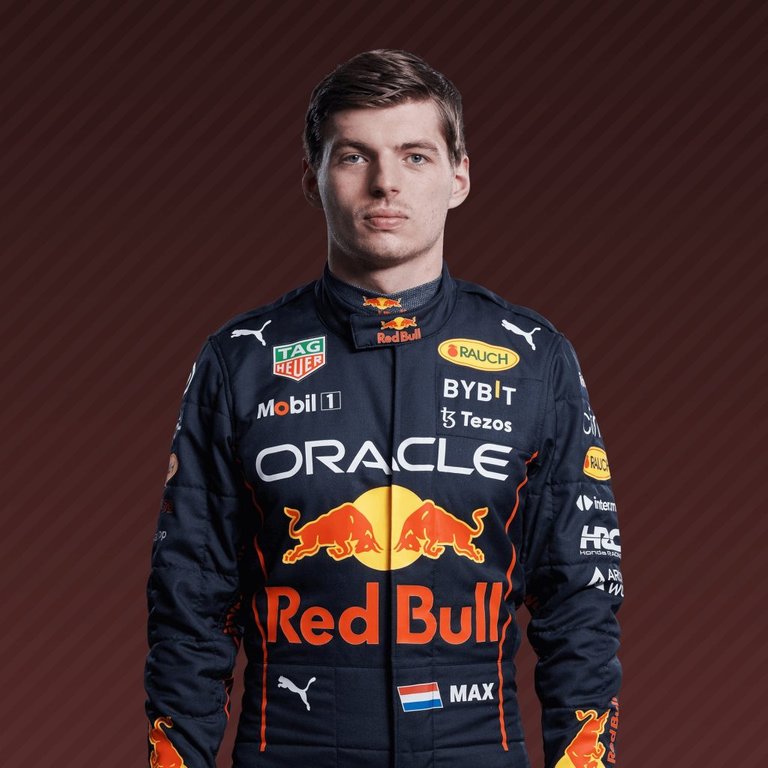
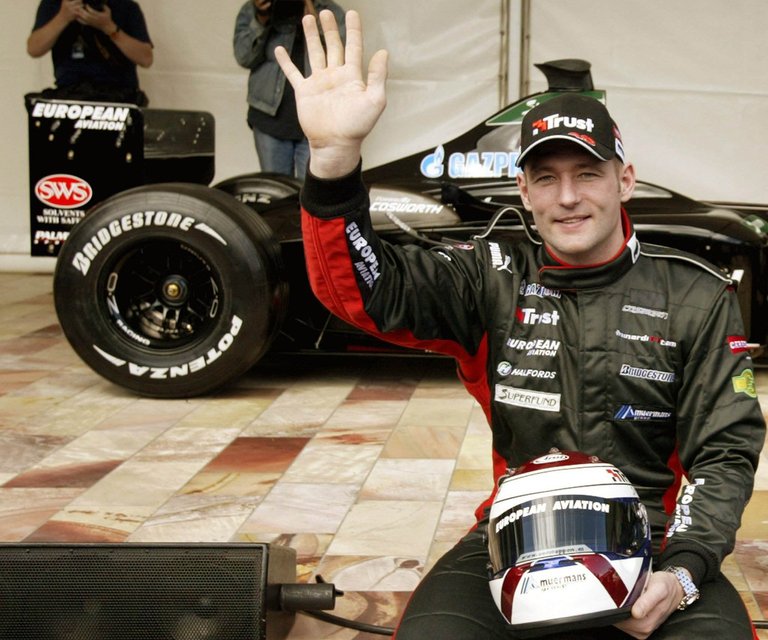
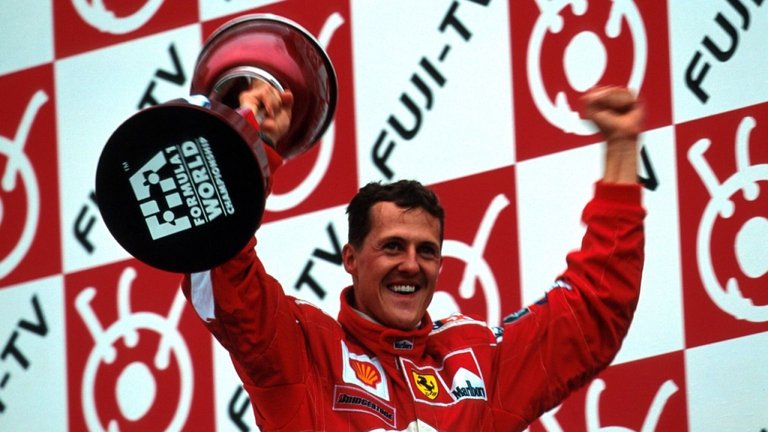
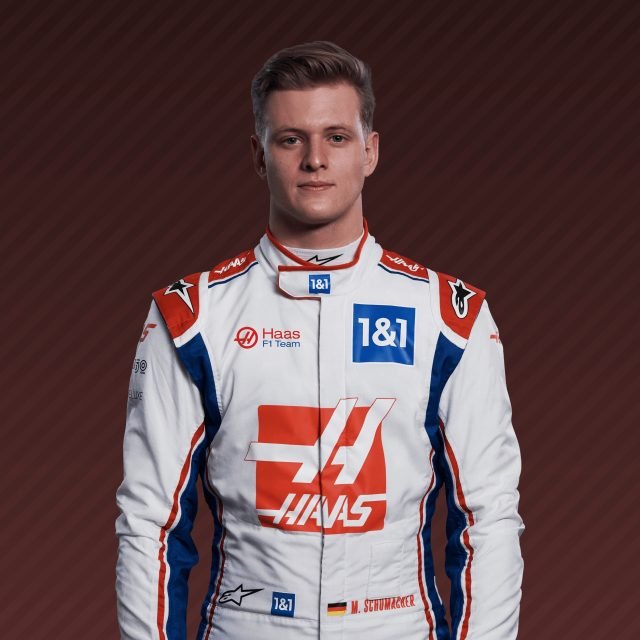
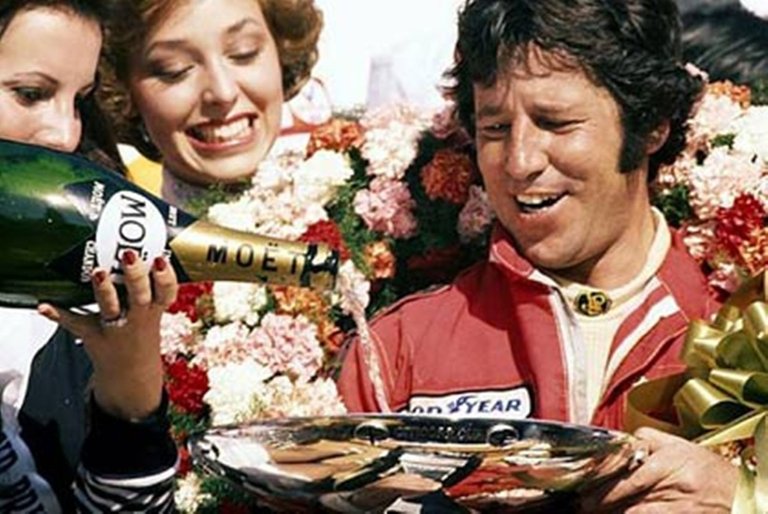
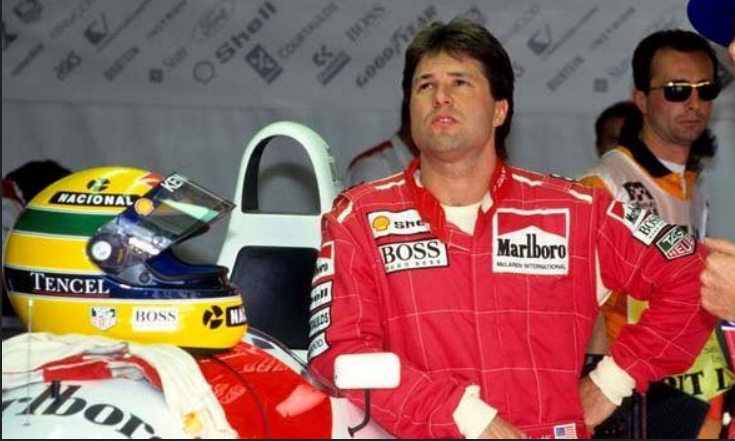
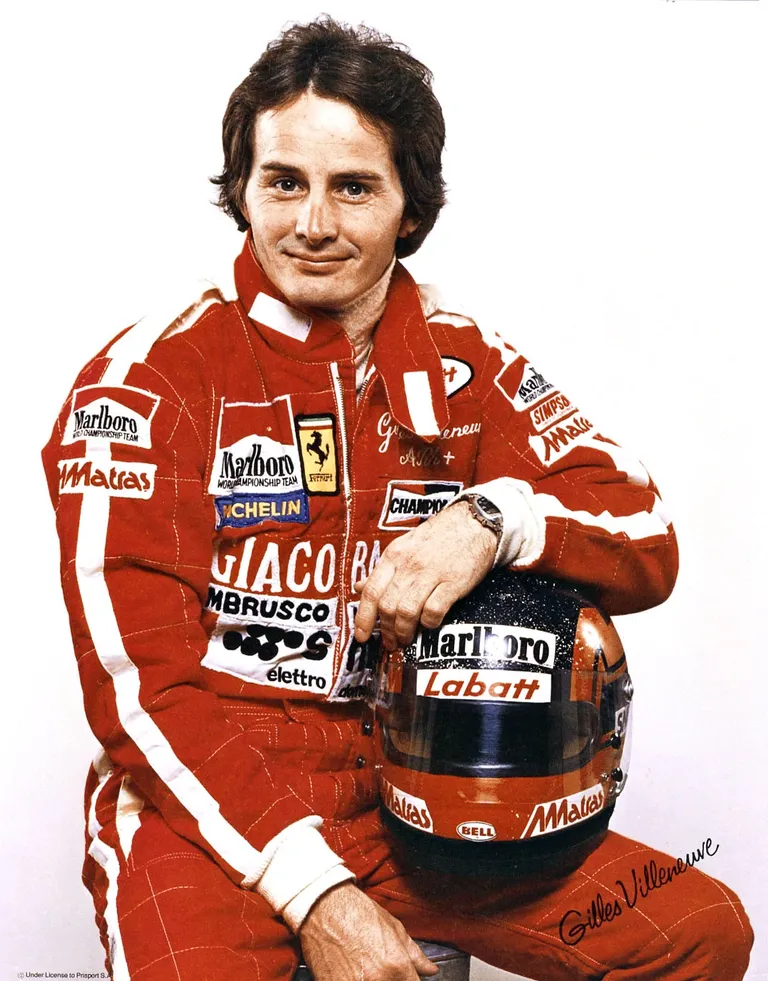
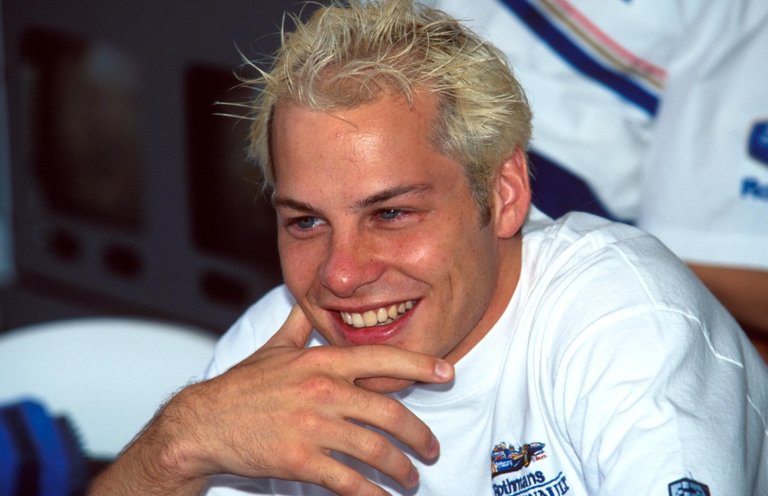
Muy interesante, no conozco mucho sobre este deporte, leer todo me ha parecido muy bien, ciertamente veía muchas críticas porque Hamilton ganaba mucho, menos mal que para la época de Michael no habían redes sociales, quizás fuera Sido peor.
No sabía el dato que Verstappen era el más joven en conseguir ese triunfo, ese hombre parece que seguirá ganando durante unos años más.
Gilles fue el que chocó de frente estando segundo contra Michael en una carrera? Vi un documental de Schumacher y no recuerdo exactamente si es ese o se trata de otro piloto que también fallecio.
Buen artículo, me gusto leer, uno puede aprender un poco de historia de la F1.
Gracias por comentar @wensports.
El tema de las ganancias es por el valor exponencial que han tenido los deportes en los últimos años: marketing, derechos de TV, cada vez menos señales de circuito abierto para ver cada espectáculo, la pay per view, streaming y la lista sigue, todo en aras de incrementar las ganancias de los deportes.
Por si fuera poco, clubes e instituciones deportivas comienzan a acuñar tokens para incrementar sus patrimonios. De hecho gran parte del sueldo de Messi es pagado en tokens del PSG. Imaginemos lo que podría ganar hoy Maradona en la plenitud de sus capacidades.
Siempre recuerdo al boxeo por más que sea un deporte que no me atrae demasiado. Mi país de origen tuvo un gran campeón mundial que se llamó Carlos Monzón. Se retiró campeón mundial invicto después de 11 o 12 defensas del título, no recuerdo bien (luego tuvo un trágico final). Le pagan algo así como USD 150.000 por defensa, cuando los boxeadores estadounidenses de los pesos máximos una década más tarde cobraban 10 millones de USD y más por cada pelea. Monzón decía que había nacido una década antes, e ironía aparte algo de razón tenía.
Creo que a un cierto punto van a tener que tirar el freno de mano como se dice en Italia. Es (casi) imposible ganar ese dinero en una sociedad -mundial- con tantos desajustes.
Respecto a Gilles Villeneuve era una especie de "kamikaze" corriendo, a veces sin medir los riesgos. Espectáculo puro. Por otro lado los monoplazas eran menos seguros. No existía el halo actual que protege la cabeza de los pilotos impuesto de manera obligatoria por la FIA a partir del 2018.
Saludos.
Es interesante que no todos los hijos/familiares logran emular o al menos acercarse un poco a los logros de los padres o familiares que fueron pilotos de F1. Algunos mejoran, como es el caso de Verstappen, otros no parecen teer mucho éxito, y a otros les va regular. Esto dice que quizás el talento es algo único, de cada piloto, y no necesariamente va ligado a ser hijo de un piloto de carreras. Muchos factores entran en juego.
Saludos @greengalletti
Exactamente @acontmotor, dicen que el ADN salta una generación para transmitirse en la siguiente, pero no creo que sé de en el ámbito deportivo en general, no solo automovilístico.
Incluso en otros deportes hay familiares directos que siguen los pasos del deportista consagrado, pero casi nunca se acercan a su nivel.
Como dices tú, hay factores inherentes al deportista que son únicos en sí mismo y lo hacen descollar del resto.
Saludos.